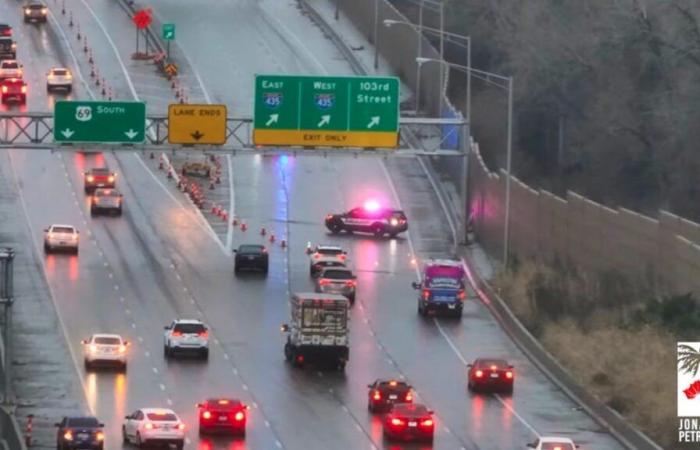More than 60 million people are in the path of the storm, which will sweep the central to eastern United States with arctic air through Monday and cause severe travel disruptions. The National Weather Service (NWS) has warned of the risk of ice, snow and strong winds from western Kansas to the coastal states of Maryland, Delaware and Virginia, over a strip of territory 2,400 kilometers wide .
States of emergency were declared in Virginia, Missouri and Kentucky and the governors of these states called on social media for residents to stay at home. Roads can become dangerous, with the NWS saying to expect “destructive frost and freezing rain” in its latest bulletin. The agency warned that some areas would experience their “heaviest snowfall in a decade.”
Scientists say extreme weather events are becoming more frequent and more severe due to human-caused climate change. The first major storm of 2025 has already caused the temporary closure of Kansas City International Airport on Saturday “due to rapid ice accumulation.”
Flights then resumed after runway thawing operations, said Kansas City Mayor Quinton Lucas. American Airlines issued an alert to its customers for 46 airports across the country affected by the storm.
Some locations in the eastern states of New York and Pennsylvania will face heavy snow from the Great Lakes, which could total 61 centimeters, according to the NWS.
-A blizzard is expected across the Central Plains on Sunday, making travel “extremely dangerous, with impassable roads and a high risk for motorists of becoming stranded,” the NWS predicts.
The United States capital, Washington, could be covered in twelve centimeters of snow, with up to 25 cm in surrounding areas. A white coat which could complicate the certification, on Monday, by Congress of Donald Trump’s victory in the presidential election. The Republican President of the House of Representatives, Mike Johnson, urged elected officials on Sunday not to “leave town”. Temperatures are expected to plunge, in some places, to -18°C, with strong gusts making the situation worse.
The possibility of freezing rain also worries authorities, due to its potential impact on roads and the power grid. A large power outage would have devastating effects for residents who would be without heat in the middle of a winter storm.
The Appalachian massif, already hit by a cataclysmic hurricane at the end of September, is particularly at risk. Severe thunderstorms are also expected in the Lower Mississippi Valley.






